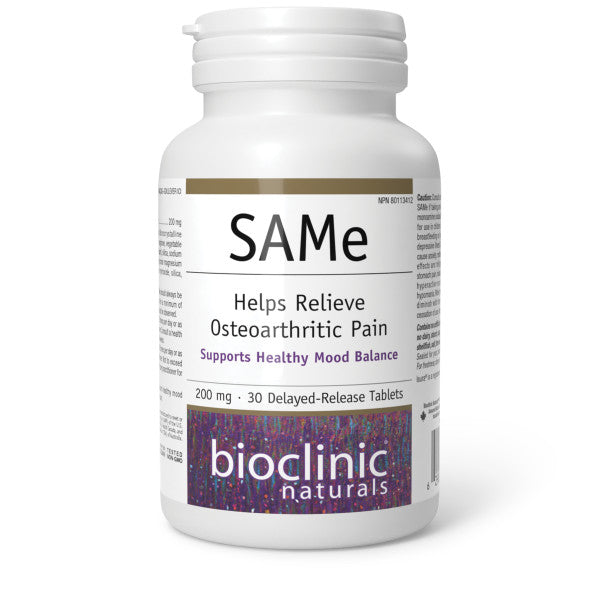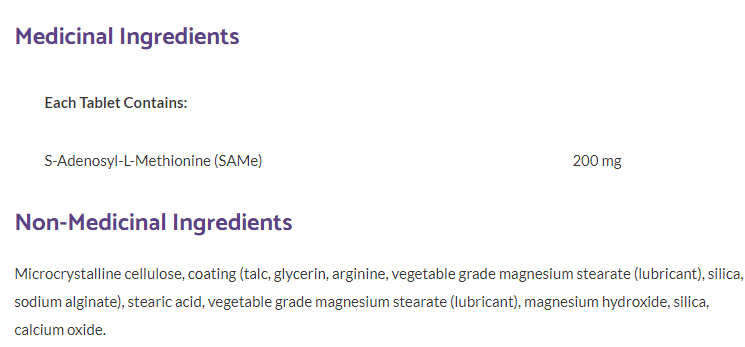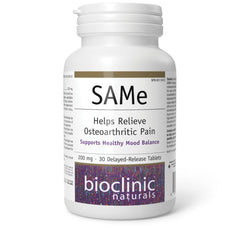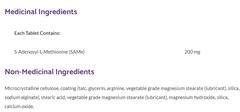



SAMe · 200 mg
- 29.99$
0.00$- 29.99$
- Unit price
- per
Description
x- Relieves osteoarthritis pain
- Key factor in several biological pathways, including methylation reactions, glutathione formation, and glutathione S-transferase activity
- The enteric coating protects SAMe from degradation caused by gastric acid, thus allowing significantly improved intestinal absorption.
- 200 mg of SAMe per tablet for flexible dose titration
- SAMe is produced through a natural fermentation process that produces higher active ingredients than synthetic variations.
- Suitable for vegetarians
S-Adenosyl-L-Methionine (SAMe) has several essential physiological functions and is the common thread between three key metabolic pathways. It is well recognized as a single methyl donor for over 100 biological reactions, including DNA methylation. It also links methylation to polyamine synthesis (required for cell survival and growth) and transsulfuration, which is responsible for the production of cysteine, the rate-limiting factor in glutathione synthesis. Its unique positioning within these intersecting pathways explains its role as a regulator of redox status, cellular metabolism, proliferation, and apoptosis.
It has been clinically proven to relieve a number of conditions, including osteoarthritis, fibromyalgia, neurodegenerative diseases, depression, and liver disease. For patients with major depressive disorder, SAMe has been shown to be effective not only compared to standard antidepressants but also in those who do not respond to selective serotonin reuptake inhibitors (SSRIs). It has also been shown to reduce the incidence of sexual dysfunction that commonly accompanies SSRI/SNRI treatment. SAMe has also shown comparable efficacy for osteoarthritis compared to NSAIDs, including celecoxib. More importantly, this is likely due to increased cartilage formation, glutathione production, DNA methylation, and gene expression that contribute to its effectiveness—a stark contrast to pharmaceutical painkillers. Research also suggests benefit for neurodegenerative diseases and potentially for improving endothelial function.
Produits recommandés
Produits récemment consultés
- Choosing a selection results in a full page refresh.



